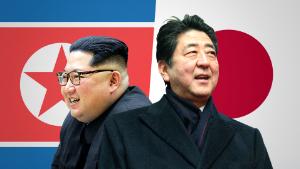Bad blood between North Korea and Japan keeps Abe on the outs
North Korea has accused Japan of sabotaging peace efforts on the Korean peninsula "at any cost."
The ongoing animosity between Pyongyang and Tokyo threatens to mar progress as the region and the US attempt to sway North Korea to abandon its nuclear ambitions in exchange for economic relief and diplomatic acceptance.
The two nations are so far from rapprochement that barely a day passes without blistering condemnation of Japan in North Korea's state media, or a hasty scramble from Japan's leadership to preempt any action from Washington that might not be in its best interests.
In the latest vitriol directed at Tokyo, North Korean state media claimed late Monday that Japan was engaged in naval exercises with British forces to police the shipment of goods to North Korea "under the pretext of strengthening the capability of monitoring the waters surrounding Japan."
"These are acts to check the climate of peace being created on the Korean Peninsula at any cost and ratchet up tension in the region," said KCNA.
The bad blood between the two nations dates back at least to the Japanese annexation of the Korean peninsula in 1910, an event routinely referenced in North Korean state media.
On August 23, North Korea's permanent mission to the United Nations issued a statement drawing attention to the "108 years since the Japanese gangsters cooked up 'Korea-Japan Annexation Treaty.'"
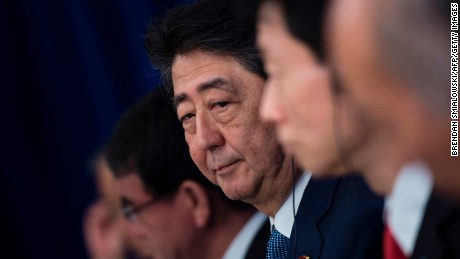
Japan PM: Nuclear North Korea greatest threat
Describing the treaty used to justify the annexation as an "illegal document for invasion," the statement argued that Japan has failed to atone for its wartime actions.
"Japan, overheated with militarist frenzy, has to keenly realize that it can never go to the future with their crime-woven past left pending," the statement went on.
"At a time when the new trend for peace created on the Korean peninsula has massive impact on the world political situation, and there witnesses a drastic change in the relations of dynamics in the region, only Japan is being treated like an outcast," it said.
Abe the outlier
That statement, while incendiary, will likely strike a nerve for Japanese Prime Minister Shinzo Abe. Indeed, as North Korea points out, much of the international community has turned from viewing Pyongyang as a malicious uncontrollable threat to a possible returnee to the world's stage. Japan has been the outlier, beseeching the world, and President Donald Trump, not to trust Kim Jong Un and his regime.
"Abe is really trying and hoping he's not going to be marginalized no matter what happens between Kim Jong Un and Donald Trump," said Koichi Nakano, a professor of political science at Sophia University in Japan.
"There is a real danger at the end of the day that Abe's Japan will have to pay the price for whatever changes are implemented by North Korea, without having a say in the decision itself," he told CNN.
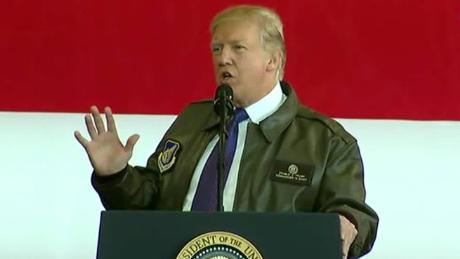
That danger explains Abe's shuttle diplomacy, his dozens of phone calls with President Trump and at least eight face-to-face meetings since Trump came into office.
Abe has met Trump at the White House, at Mar-a-Lago in Florida, at G7 summits around the world, as well as in Japan, all to press the American president to keep Japan's interests at the forefront of his negotiations with North Korea.
Along with the nuclear threat Pyongyang poses to the region and the US mainland, Japan remains on tense alert over North Korea's use of short-range ballistic missiles, which have landed near Japan in the past, and the possible drawdown of US troops in the Korean peninsula, leaving Japan exposed to another emboldened regional player: China.
Abductions and political cover
Abe has also been pressing Trump to remember the fate of Japanese citizens abducted by North Korea. A report in 2014 by the United Nations Human Rights Council concluded that hundreds of South Koreans, Japanese and other foreign nationals were kidnapped by North Korea after the end of the Korean War in 1953.
Even as Abe appears as the supplicant in the relationship with Trump, at home his position is strong and the media in lockstep with his use of North Korea as the perpetual bogeyman, deflecting his domestic political scandals.
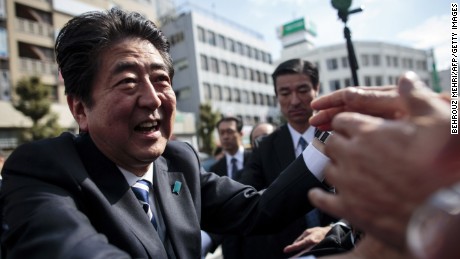
"The Japanese media is not very good at covering foreign affairs, Abe gets to have the stories he wants people to believe conveyed in the mass media," Nakano told CNN.
"Abe has waged his whole political life on making sure North Korea is kept as the enemy," said Caroline Norma, a senior research fellow at the School of Global, Urban and Social Studies at RMIT University in Melbourne.
"Since 2007, the Abe regime in its first iteration gained political power domestically and constructed the whole administration as an anti-North Korean administration," she told CNN.
Deep divisions
The vitriol between the two countries is real, says Joseph Siracusa, also at RMIT University. And while the Japanese may fight for the fate of some 17 Japanese citizens, he argues that the North Koreans' grievances against Japan run much deeper, in much greater numbers.
"The thing that drives the Koreans crazy is the issue of the comfort women, the North Koreans have made a number of public protests that Japan has failed to acknowledge," Siracusa told CNN. "That explains it not only geopolitically, but they violated the flower of their youth. I think I'd remember that for a long time."
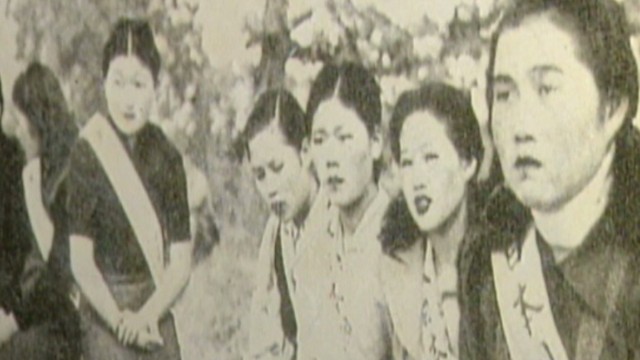
It's not known exactly how many women served as so-called comfort women but the Japanese government disputes the previously reported number of 200,000 across Asia.
The United Nations Special Rapporteur on violence against women found in a report that "comfort stations" that provided forced sexual slaves for Japanese military began as early as 1932, nearly 10 years before it became a more widely known and regular practice.
"The first military sexual slaves were Korean from the North Kyushu area of Japan, and were sent at the request of one of the commanding officers of the army," the UN wrote in its report. The Japanese, it wrote, "were able to procure more women for the increasing demands of the army by using violence and outright coercion."
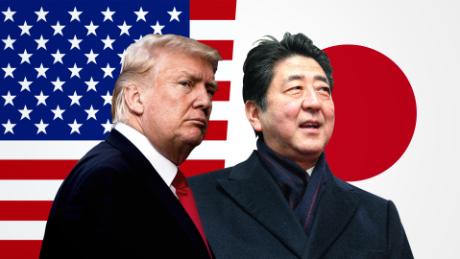
Seoul and Tokyo signed a deal in 2015 that was intended to settle the matter between the two countries, but victims groups objected and the issue remains highly controversial, even as South Korea and Japan work together to prevent more militarization and belligerence from North Korea.
Japan has expressed "sincere apologies and remorse" for the way the women were treated, and opened a fund to provide compensation for former victims in South Korea, the Philippines and Taiwan. No specific deal has been negotiated with North Korea.
"The two sides are so far apart that it's hard to see the Japanese government being willing to get into that issue," Koichi Nakano said. "The issue of the comfort women is the single biggest obstacle to a more cordial relationship even with South Korea."
Talks are canceled, again
But the emotional issue is one of many that can thwart any potential progress on the North Korean-Japanese diplomacy front.
"Abe knows something, that this rapprochement is going to fall apart at the seams," said Siracusa. "North Korea has no intention of losing its nuclear weapons."
Indeed, Trump has canceled Secretary of State Mike Pompeo's upcoming trip to North Korea where he was scheduled to meet with North Korean officials about Pyongyang's agreement to work to dismantle its nuclear weapons.
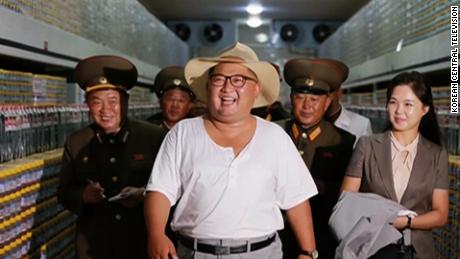
"I feel we are not making sufficient progress with respect to the denuclearization of the Korean peninsula," Trump tweeted over the weekend. "Secretary Pompeo looks forward to going to North Korea in the future, most likely after our trading relationship with China is resolved. In the meantime I would like to send my warmest regards and respect to Chairman Kim. I look forward to seeing him soon!"
There is no word yet on whether Pompeo has rescheduled his trip.
"Abe knows this is never going to be solved the way that people think it's been solved," said Siracusa. "He's not buying Trump's story. He knows this is going to bounce back. He's just waiting for the day he'll be proved right."
News Courtesy: www.cnn.com

